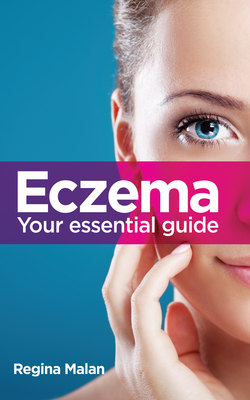Читать книгу Eczema: Your essential guide - Regina Malan - Страница 9
На сайте Литреса книга снята с продажи.
THE ATOPIC TRIAD: ECZEMA, ASTHMA AND ALLERGIC RHINITIS
ОглавлениеAlthough eczema is not an allergic condition, it is often typically accompanied by the allergic respiratory conditions asthma and rhinitis or hay fever. All three run in families and are hereditary. Together they are known as the atopic triad (see Figure 2.4). When diagnosing your skin condition, your doctor will therefore enquire after a family history of asthma and allergic rhinitis.
A clear, radiant skin is always a sign of the body’s internal health. Skin problems may therefore signify imbalances in one or more body systems.
The eczema sufferer may not necessarily also suffer from asthma and rhinitis, but these conditions may turn up somewhere in the family history. The precise nature of the relationship between the three conditions has not yet been established, but they probably have certain gene defects in common.
Eczema sufferers often run the risk of the so-called atopic march. This refers to the fact that the pattern in which the atopic triad occurs may vary over the years. If, for instance, children under the age of three with eczema and allergies outgrow their allergies, they may develop severe asthma. The asthma symptoms may diminish during their adolescent years and hay fever may rear its head. Later in life, after the age of 40, the hay fever may in its turn subside, while eczema and asthma flare up once again.2
Self-management of eczema by the patient involves patient education by the doctor. Continuous cooperation between the medical practitioner and the patient is essential.
If a person suffers from both eczema and asthma, the two conditions act independently of each other. An acute eczema flare-up does not affect a person’s asthma, nor does an asthma attack have any influence on the eczema. The third component of the atopic triad, allergic rhinitis, also acts independently of the other two.
